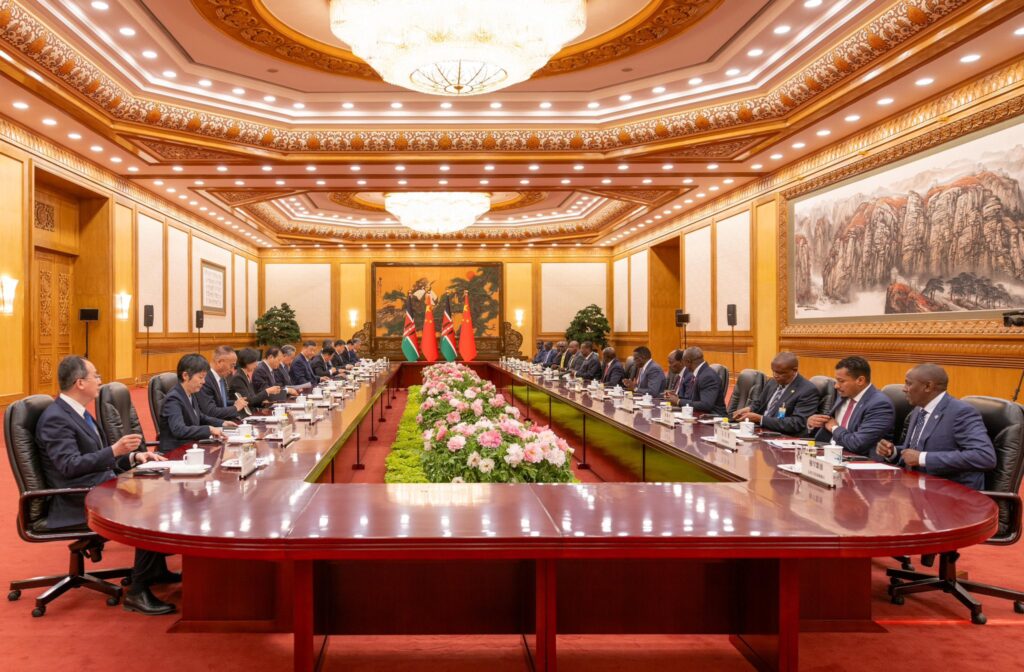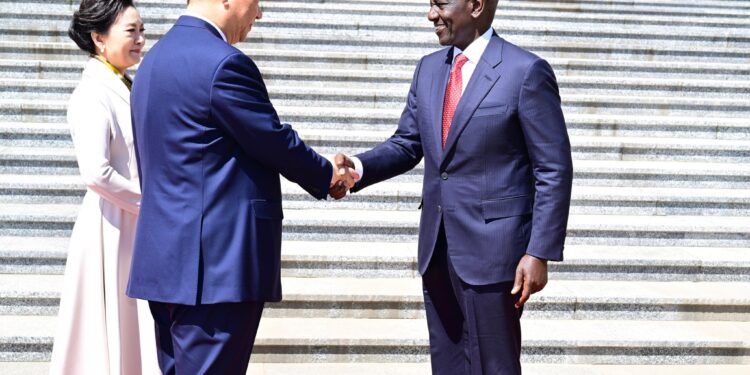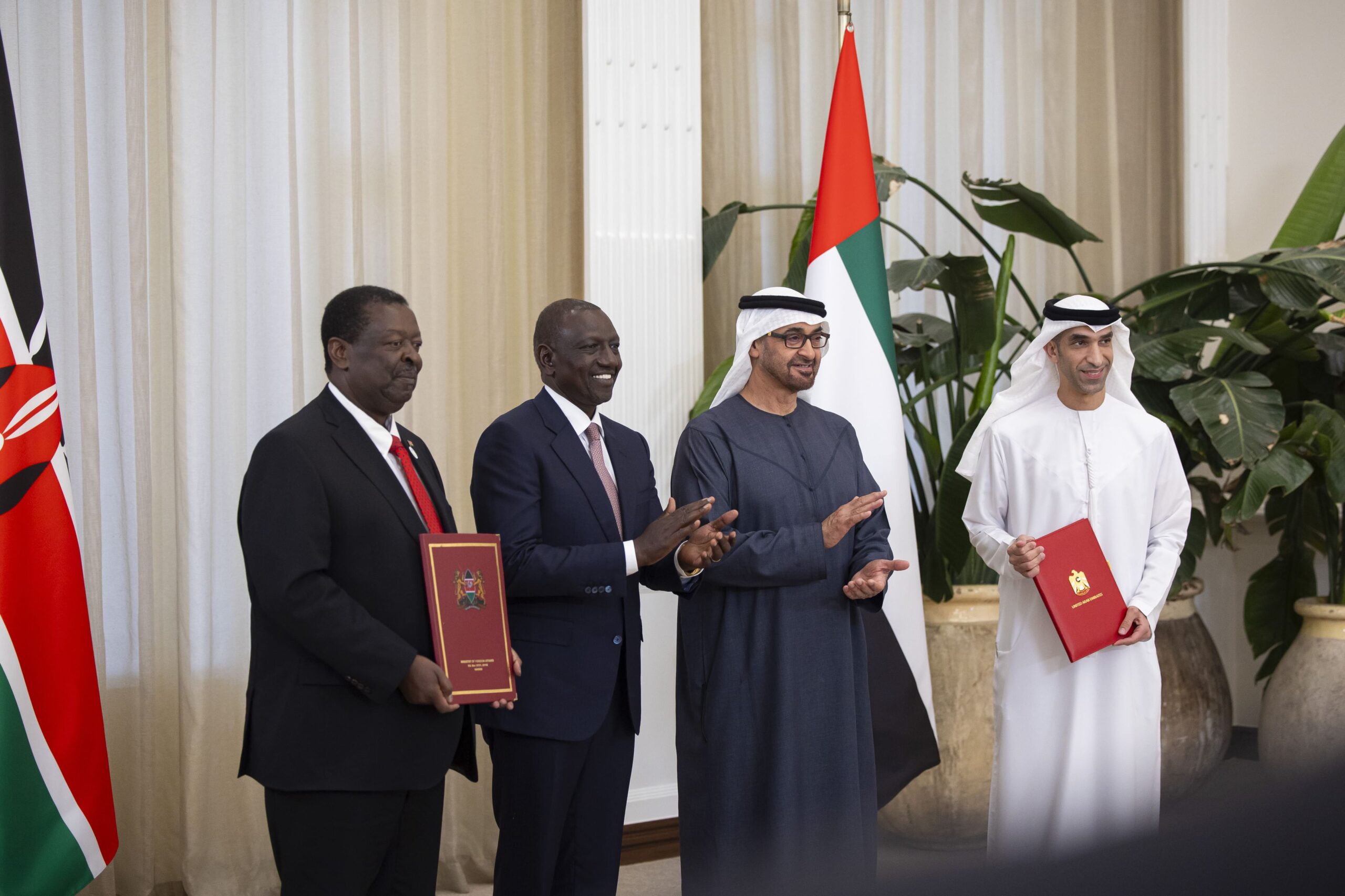President William Ruto’s latest state visit to Beijing has marked a watershed moment in Kenya’s foreign policy and economic transformation agenda. In a high-level ceremony held at the iconic Great Hall of the People, President Ruto and China’s President Xi Jinping presided over the signing of multiple landmark agreements aimed at propelling Kenya into a new era of economic progress and digital innovation. The state visit reaffirms Ruto’s steadfast focus on strengthening strategic partnerships that fuel domestic development and empower Kenya’s position globally.
At the center of the agreements was a landmark Memorandum of Understanding (MoU) on the Blue Economy, Fisheries, and Maritime Affairs. This not only aligns Kenya with the WTO Fisheries Subsidies Agreement but also injects new life into the country’s coastal regions by boosting sustainable resource management. The MoU is expected to generate jobs, increase exports, and safeguard marine ecosystems, creating a model of environmentally conscious development.
In the realm of digital technology, Kenya made a giant leap with the signing of a Cyberspace Accord. This agreement covers cooperation in Artificial Intelligence (AI), data protection, digital laws, and policy frameworks. By collaborating on these critical fronts, Kenya is preparing to be a regional leader in tech governance and innovation, offering security and growth in an increasingly digital world. The AI infrastructure and talent development focus are particularly crucial as Kenya eyes future-ready economic sectors.
One of the most tangible outcomes of the Beijing visit was in infrastructure. Kenya secured critical funding and technical partnerships for major national projects under China’s Belt and Road Initiative. These include the continuation of the Standard Gauge Railway (SGR), urban road upgrades, rural connectivity, and the implementation of Intelligent Transport Systems in Nairobi and Eldoret. Such developments promise not only modern mobility but also open up trade routes and reduce urban congestion.
Healthcare and water management also received a much-needed boost. Kenya and China agreed on feasibility studies to upgrade Londiani and Baringo County hospitals, and signed a framework on irrigation and water management. These moves are key to building climate resilience and addressing chronic challenges in food production and healthcare delivery, especially in marginalized regions of the country.

In education, the MoU on vocational training will transform Kenya’s TVET sector. Through joint curricula development, enterprise-linked training, and digital integration, young Kenyans will be equipped with practical skills that match evolving industry demands. Meanwhile, cultural diplomacy was uplifted through museum collaboration and heritage research, positioning Kenya as a global cultural brand and strengthening tourism.
Kenyan entrepreneurs and businesses stand to benefit greatly from agreements in e-commerce, trade policy, and industrial support. New frameworks on sustainable manufacturing, agro-processing, and digital market integration are set to enhance trade competitiveness and diversify exports. This comes at a crucial time as Kenya looks to scale exports of coffee, tea, rice, and nuts into more lucrative Asian markets.
A noteworthy diplomatic milestone was reached with China’s pledge to construct Kenya’s new Ministry of Foreign Affairs headquarters. This is not only a symbolic gesture but also a strategic investment in Kenya’s global diplomatic presence. Strengthening migration management systems and border security was also part of the package, ensuring that Kenya is well-armed to address modern transnational challenges.
On the environment front, a green development pact was signed, reinforcing Kenya’s leadership in climate action. This MoU promotes low-carbon economic strategies, green investments, and clean energy collaborations. In line with this, Kenya will also receive support for AI-enabled climate solutions, linking digital transformation with environmental stewardship.
President Ruto’s state visit has undoubtedly delivered one of the most comprehensive bilateral frameworks in Kenya’s diplomatic history. The wide-ranging MoUs, agreements, and partnerships reflect a vision of shared prosperity, with Kenya poised to benefit massively across infrastructure, trade, digital economy, agriculture, and innovation. With the Beijing accords now signed, the challenge ahead lies in robust implementation—and President Ruto has pledged to see that Kenya reaps fully from these transformative ties.










